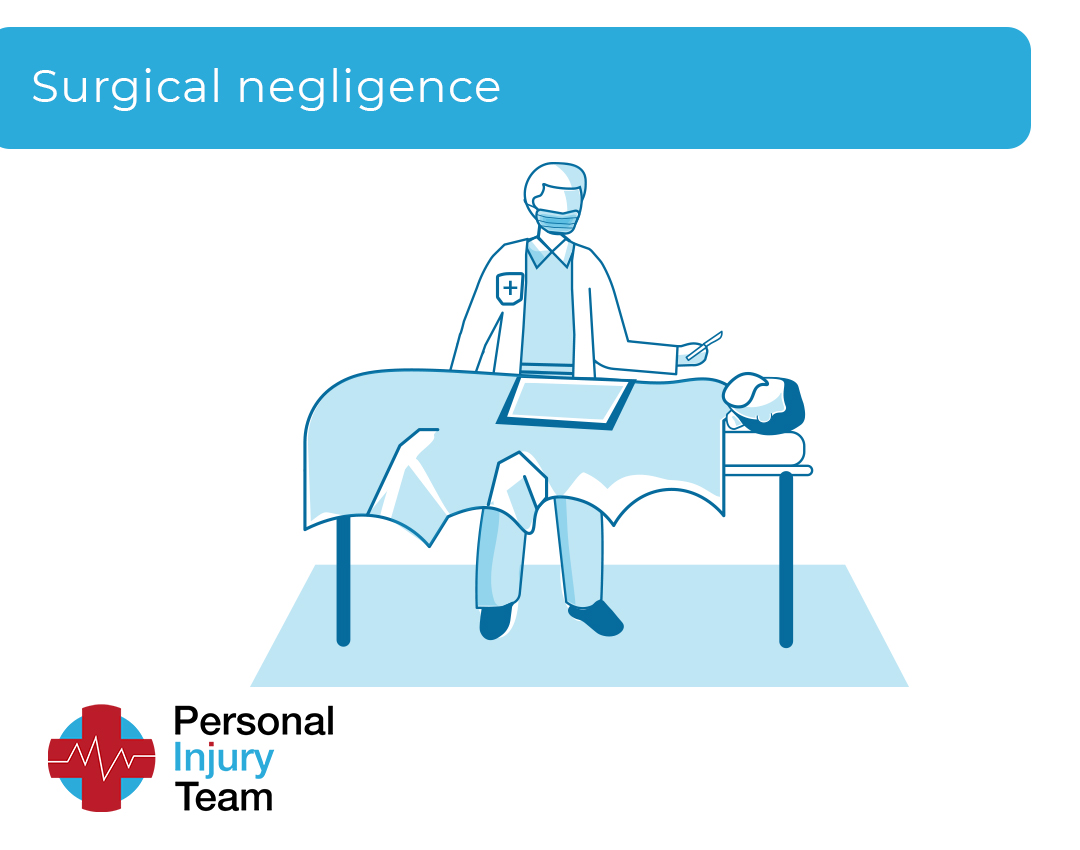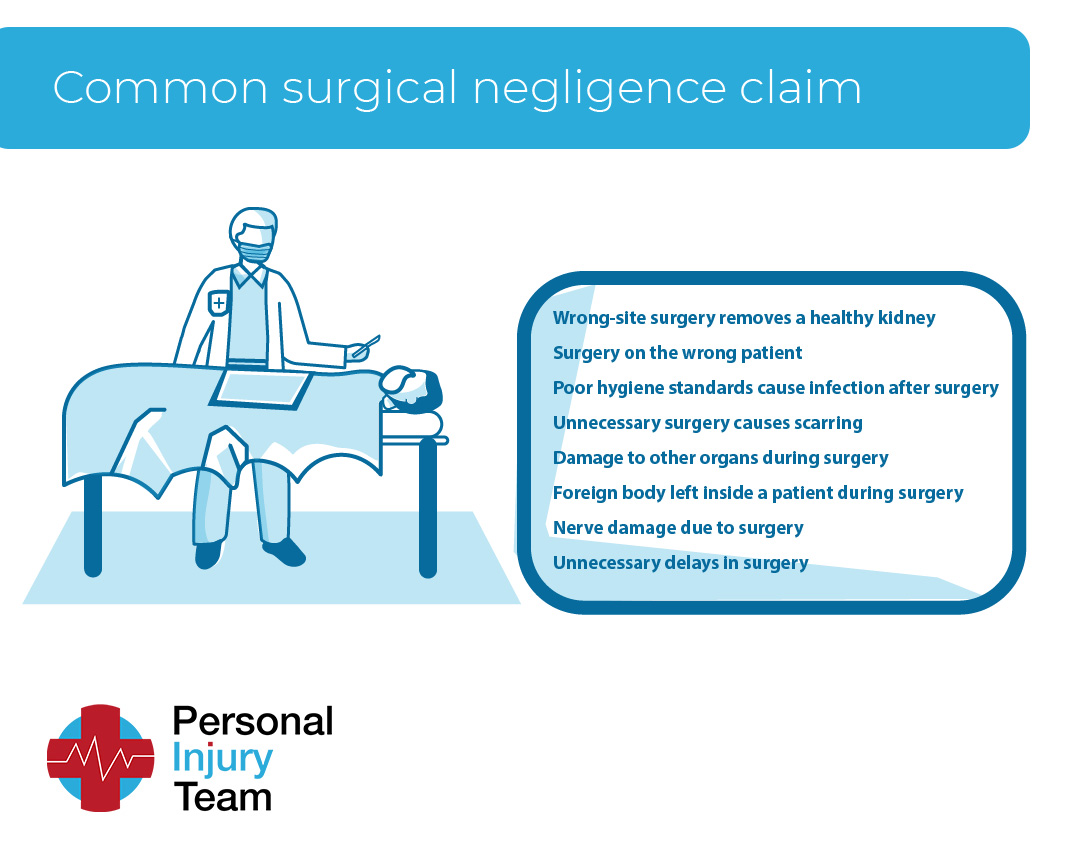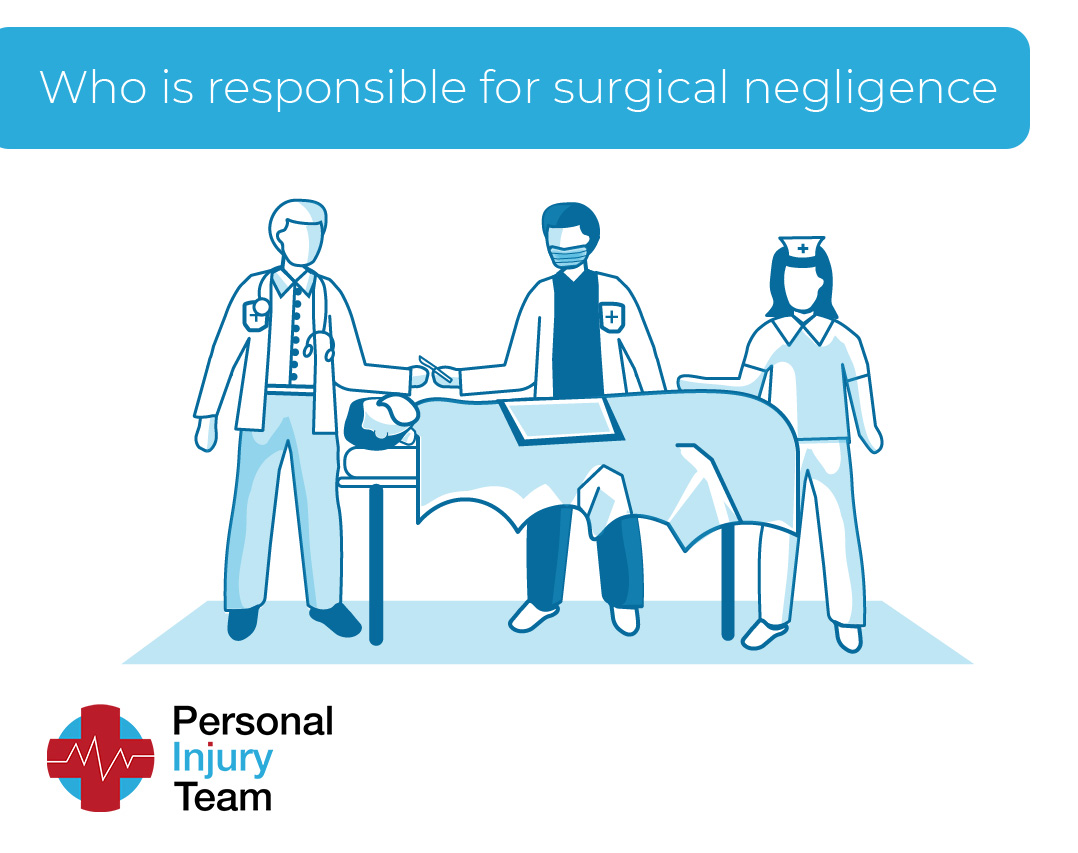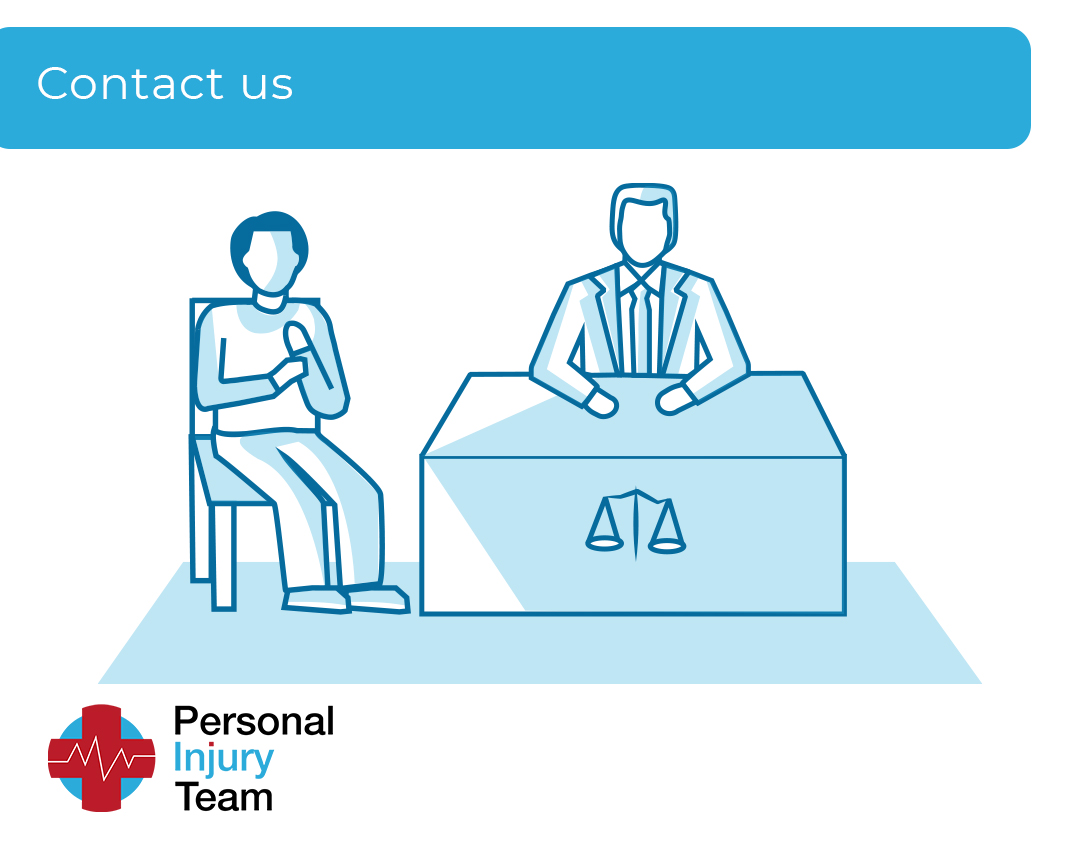Surgical negligence is surgery below an acceptable and professional level. It is surgery that harms the patient, and negligence claims range from wrong-site surgery to unnecessary delays in the NHS and damage to surrounding nerves and organs.
If you suffer an injury during surgery caused at least in part by someone else’s medical negligence, you may well be entitled to make a claim for compensation. In a surgical negligence claim, you seek compensation for the possible harm done by the surgeon and surgical team.
Your personal injury solicitor seeks to recover damages through a claims process. If you or a loved one have been injured and your life impacted by an accident that was someone else’s fault, a claim for compensation seeks financial redress for the injuries and financial losses.
If you have been injured in an accident and it was not your fault, The Personal Injury Team No Win No Fee solicitors can file your compensation claim for the money you deserve.

Table of Content
What is a surgical negligence claim?
A surgical negligence claim is when you seek compensation for a personal injury you suffer during surgery. You may be able to claim damages when you suffer surgical negligence in pre-surgery care, during surgery and in post-op surgical care.
You might be able to claim compensation for the injury due to medical negligence and the effects of it on your life. You could be injured, need further surgery, and have large medical bills to pay, but you might be able to claim compensation to cover your costs.
The NHS or private clinic has a duty of care to those who use their hospitals for inpatient or outpatient surgery. If they breach that duty of care and you suffer surgical negligence, you might have a medical negligence claim for compensation.
A No Win No Fee personal injury solicitor can review your case and advise if you have a valid surgical negligence claim.
Common surgical negligence claims
Common surgical negligence claims range from severed nerves, wrong limb amputation and infection caused by poor hygiene care. Surgical negligence may have a lasting effect on your life, and you can make a surgical negligence claim for compensation.
Common surgical negligence claims are:

Wrong-site surgery removes a healthy kidney
Wrong-site surgery removes a healthy kidney claim can happen if the surgical team does not follow accepted procedures. The surgeon does not read the patient notes, the team preps the patient incorrectly, or there is a mix-up in surgery planning.
The patient loses a healthy kidney and could have a surgical negligence claim. Other types of wrong-site surgery include amputation of the wrong limb, surgery on the wrong eye and knee surgery on the wrong knee.
Surgery on the wrong patient
Surgery on the wrong patient can happen when the surgical team does not cross-check the patient’s name with their notes. Two James Jones may be waiting for surgery, but the team should have the right one for the correct surgery.
To mix up a patient with their surgical procedures can cause lasting damage. Losing a healthy organ will have a traumatic effect on a patient and could lead to a compensation claim for surgical negligence.
Poor hygiene standards causing infection after surgery
Poor hygiene standards causing infection after surgery could endanger a patient’s life. Infection spreads quickly in surgical settings, and MRSA and other antibiotic-resistant bugs can be difficult to treat and may even be life-threatening.
The hospital authorities should have strict hygiene protocols in place to prevent infection after surgery.
If you or a loved one contract an infection after surgery, you may have a surgical negligence claim for compensation.
Unnecessary surgery causes scarring
Unnecessary surgery causes scarring, such as that left by an open surgical procedure, when keyhole surgery would have been a better option.
Patients should be fully informed of all options before surgery. If a non-surgical or less invasive option is available, the team should advise the patient accordingly.
Damage to other organs during surgery
Damage to other organs during surgery can happen if the surgeon does not pay full attention when working on the patient. A simple surgery can quickly go wrong if the surgeon nicks the bowels or a lung when hurrying to finish the work.
Surgery has its dangers, and damaging other organs can cause the body to go into shock or spread an infection into the bloodstream.
You may have a claim for surgical negligence if the surgeon damages other organs during your surgery.
Foreign body left inside the patient during surgery
A foreign body left inside the patient during surgery happens when the surgeon and surgical team are negligent in adhering to protocol. All equipment and other items should be accounted for after surgery, and all precautions should be taken to avoid infecting the patient.
Swabs, surgical thread, and rubber gloves are common foreign bodies left inside a patient during surgery.
The foreign body will cause infection, and the signs may not become obvious until the patient becomes very ill after surgery.
Nerve damage during surgery
Nerve damage during surgery can happen when working on a joint replacement, and the surgeon nicks a nerve while operating.
The surgeon must be aware of all dangers during surgery and take care to avoid doing damage to surrounding nerves and organs.
Nerve damage may require further surgery and could take a long time to heal, affecting the patient and their life.
Unnecessary delays in surgery
Unnecessary delays in surgery can cause a condition to worsen and reduce the effectiveness of surgery.
Unnecessary delays, such as poor roster planning causing postponements to surgery, can seriously affect cancer patients.
Surgery should be scheduled according to NHS guidelines, and suffering due to unnecessary delays should be avoided at all costs.
A No Win No Fee medical negligence solicitor can take your case and see if you have a valid compensation for surgical negligence claim.
Compensation for surgical negligence claim
If you have been the victim of Surgical Negligence by an NHS professional, speak to a solicitor and find out how much you are entitled to in compensation.
Who is responsible for a surgical negligence claim?
The NHS Trust, which runs the hospital where you had the surgery, can be responsible for a surgical negligence claim.
A tired anaesthetist, a poorly-trained nurse or a surgeon doing surgery at the end of a busy day might cause your injury, but the NHS as their employer, is responsible for the compensation claim.
Medical negligence is treatment by a medical professional that is below acceptable standards. If you experience medical treatment during surgery that another professional doctor would not provide, you may suffer surgical negligence.
The private hospital or clinic where you are a patient may also be responsible for the negligence. It could be that the hospital employed a surgeon or nurse not qualified for the work involved, and you suffered medical negligence as a result.

Any NHS hospital or private clinic that does not practice good hygiene standards may also be responsible for medical negligence.
If the NHS hospital does not follow accepted guidelines for patient treatment, it may be responsible for surgical negligence. NICE guidelines outline how a patient should be treated, and a breach of those guidelines could be surgical negligence.
Your No Win No Fee solicitor can help you make a claim against those who could be responsible for your surgical negligence.
Our Process
We make the claim process as simple and streamlined as possible, and that’s one of the reasons we’re maintain a 4.9 / 5 ★ rating from our customers!
Enquiry
The first step is to get in touch and tell us what went wrong. It’s free and easy. Call our 24-hour helpline: 0800 027 0370 or request a callback here.
Claim Evaluation
Once you have spoken with our team we’ll let you know how we can help. This will involve a thorough case review and understanding of the incident, financial damages and physical injuries.
Legal Letter
Once we are satisfied we have all the information we require and have a full understanding of your circumstances. We send a letter of claim to the negligent party outlining your claim and compensation requirements.
Potential effects of surgical negligence
The potential effects of surgical negligence range from infection to life-limiting disabilities and even death in some cases. Instead of doing a simple surgical procedure, the surgeon has breached their duty of care to the patient, and the potential effects may be with the patient for life.
Potential effects of surgical negligence are:
A No Win No Fee medical negligence solicitor
A No Win No Fee medical negligence solicitor should be your only choice when making a claim. A No Win No Fee medical negligence solicitor fights your case and does not take a fee if you do not win.
A No Win No Fee solicitor only charges you for winning the case, and you can agree to all the terms before the claim begins. The insurance company may pay some of the legal fees, and a No Win No Fee solicitor will agree with you on how much of the shortfall might come from your compensation.
It is usually a percentage of up to a maximum of 25%, although the deduction may be nothing in larger cases.
You should be cautious about instructing a solicitor who does not have experience with medical negligence cases and who will not agree to take your case on a No Win No Fee basis, as you could end up with a large bill if your claim fails.
An experienced No Win No Fee solicitor handles your medical negligence claim to try and get you the compensation you deserve.
How long do I have to make a claim for medical negligence?
You have three years to make a medical negligence claim for compensation. The three years usually begin from when you suffered possible medical negligence.
Medical negligence compensation claims must generally be brought and court proceedings issued within three years of the negligence.
If a loved one has passed away, the family can start a medical negligence compensation claim within three years of the date of death.
There is no time limit for medical negligence claims for those who lack mental capacity.
Your No Win No Fee medical negligence solicitor will know all claim limits and how to make a possible claim within your time limit.
Will I have to go to court for my claim?
You are very unlikely to have to go to court to make your claim for surgical negligence compensation.
If you follow our advice, the claim process usually goes smoothly, and the vast majority of claims will be settled long before court proceedings are needed.
Our medical negligence team will fight your case. Even if court proceedings must be issued because, for example, the defendant unreasonably denies liability, the case is still unlikely to have to end up at a trial.
Very few compensation claims require court proceedings, and even fewer, less than 1%, will end up at trial.
Find out how much you can claim for today
Find out how much you can claim for today by using our online assessment tool. It will give you an idea of what you might be able to claim for and what compensation you might be able to expect in a medical negligence claim.
Compensation amounts are guidelines only on what to expect from your claim. Our solicitors can advise you using their expertise and experience and can quickly tell you if you have a valid medical negligence claim and what to do next.
Our team of No Win No Fee medical negligence solicitors can take your case to seek the compensation you deserve. We have the experience to handle your claim for compensation and see it through to a successful conclusion, whether the claim is worth £1,500 or more than £10,000,000.
Take our online assessment today to get an idea of claim amounts and what you could be due for the pain, suffering and impact on your life.
Contact your Personal Injury Team today for immediate expert advice tailored to you.


